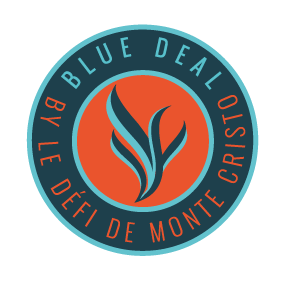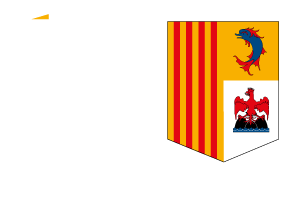The Blue Deal

What is the Blue Deal ?
Being an eco responsible sporting event, it’s a collective effort ! Protect the environment, save water, reduce waste, repair, reuse : change our habits.
In recent years, the Défi de Monte-Cristo has constantly challenged itself to minimize its impact on the environment. Current issues and challenges are pushing the Challenge to become a benchmark event in terms of eco-responsibility.
In 2021, the Défi created the BLUE DEAL, to bring together all the commitments and actions eco-responsible long-term.
Find all the commitments put in place, in part, thanks to our partners :


Our commitments
For several years, plastic has had a real impact on our environment and has become a major problem in the Mediterranean, the most polluted sea in the world. The Monte Cristo Challenge has decided to implement a ZERO PLASTIC policy through many measures:
- 9 self-service drinking water taps throughout the village;
- 0 plastic bottles for supplying participants;
- 3 taps of drinking water at the refuelling and provision of 100% compostable cups to hydrate after the effort;
Separate our waste means saving the natural resources that we may miss tomorrow. This is why the Monte-Cristo Challenge has called on an association specialized in setting up the sorting.
Actions will also be taken to raise awareness of good practice among our service providers and partners:
- Before the event (assembly phase): setting up a sorting system for all service providers;
- During the event: sorting system and awareness of good practices among participants;
- After the event (disassembly phase): collection and recovery of all waste. All the waste that has been collected during the pickups and collected during the event will be collected through recycling and upgrading channels.
The impact of waste on the Mediterranean and beaches is detrimental to marine biodiversity.
This is why the Challenge of Monte-Cristo has decided to co-organize, with a referent environmental association on the territory, collection actions on the beaches of Marseille.
The waste collected and sorted will be integrated into a recycling process with the aim of recovering it.
This year the Challenge will reward the winners with awards like no other…
Following the beach clean-up activities, part of the collection will be sent to one of the Challenge partner associations.
This association, fighting against the massive plastification of the Mediterranean Sea, will recycle in an artistic and creative way the collection in trophies for the winners of this 23rd edition.
As cigarette butts are one of the most found waste on beaches and polluting the waters, the Monte-Cristo Challenge in partnership with a specialized association will implement different measures:
- Playful ashtrays at key locations in the village;
- Awareness of good practices and actions;
The collection will be transferred to a company approved for its transformation into energy.
A quarter of air pollution comes from transport in Europe.
This is what prompted the Monte-Cristo Challenge to encourage participants to travel by soft transport methods (carpooling, public transport) and to promote new, greener alternatives through partnerships offering them advantages.
For electric scooters, they will benefit from free unlocking and 10 minutes of travel.
In an effort to reduce our Carbonne footprint on the water, the motor boats of the Monte-Cristo Challenges have been eliminated at 60%. However, for the safety of any one of you, we cannot delete them all but we limit their uses.
To replace our motor fleet, a system of professional lifeguards aboard kayaks and paddle joined the Challenge adventure to supervise the races.
We use buoys that do not need to be anchored to the seabed. This solution is environmentally friendly, as it preserves underwater ecosystems by preventing damage to the seabed and wildlife.
This year, to limit our energy consumption and thus reduce greenhouse gas emissions, all facilities in the Village of the Challenge will be equipped with LEDs that have a better environmental record than all other lamps.
In addition, the Monte-Cristo Challenge has moved closer to a green electricity supplier, guaranteeing certifications allowing the traceability of energy from its origin to its delivery to the final consumer.
Food waste is a scourge. To avoid this, the Monte-Cristo Challenge decides to implement an anti waste policy by redistributing all unsold food to associations supporting people in need such as Restos du Cœur.
Because the way we consume has consequences for the environment and our health, the Défi de Monte-Cristo has chosen to give priority to short and eco-friendly circuits offering seasonal products.
Combined with the existing sorting system, the consumables related to the restoration will now be 100% recyclable (compostable cardboard cups, bamboo cutlery, recyclable containers). In addition, they will be recycled by an association in Marseille.
The Défi de Monte-Cristo will send all of its coffee grounds and some of its organic waste to a Marseillaise farm to recover it. It will use them as composts or agricultural fertilizers to enrich its land in a natural way, without organic fertilizers, and thus benefit its crops.
The other part of the organic waste that the organic farm cannot compost will be transferred to an association which will compost it itself
The Défi de Monte-Cristo favours committed partners for the preservation of the environment.
To further reduce its impact, Le Défi de Monte-Cristo will use solar panels installed on the village to generate its electricity during the event.
For all environmentally conscious people, unable to travel with gentle transport methods, you can offset your carbon footprint, by making a donation to the Marine Park that work on “changes in the organization of fish stocks due to warming waters”.
To make a donation click here
You can calculate your carbon footprint with the ADEME calculator.
The Défi de Monte-Cristo is committed to reducing its environmental impact by applying sustainable development principles to its communication through digitalization:
- The creation of digital media;
- Screen communication in the village;
- Development of a newsletter and social networks;
Some POS-type products will be produced, but these will be created solely from recycled products and materials. At the end of the event, all advertising banners will be recycled into accessories such as bags.
The Défi aims to raise the awareness of all the actors involved in the event: volunteers, swimmers, partners, restaurateurs. The Défi therefore created charters to guide and sensitize all of these stakeholders before, during and after the event.